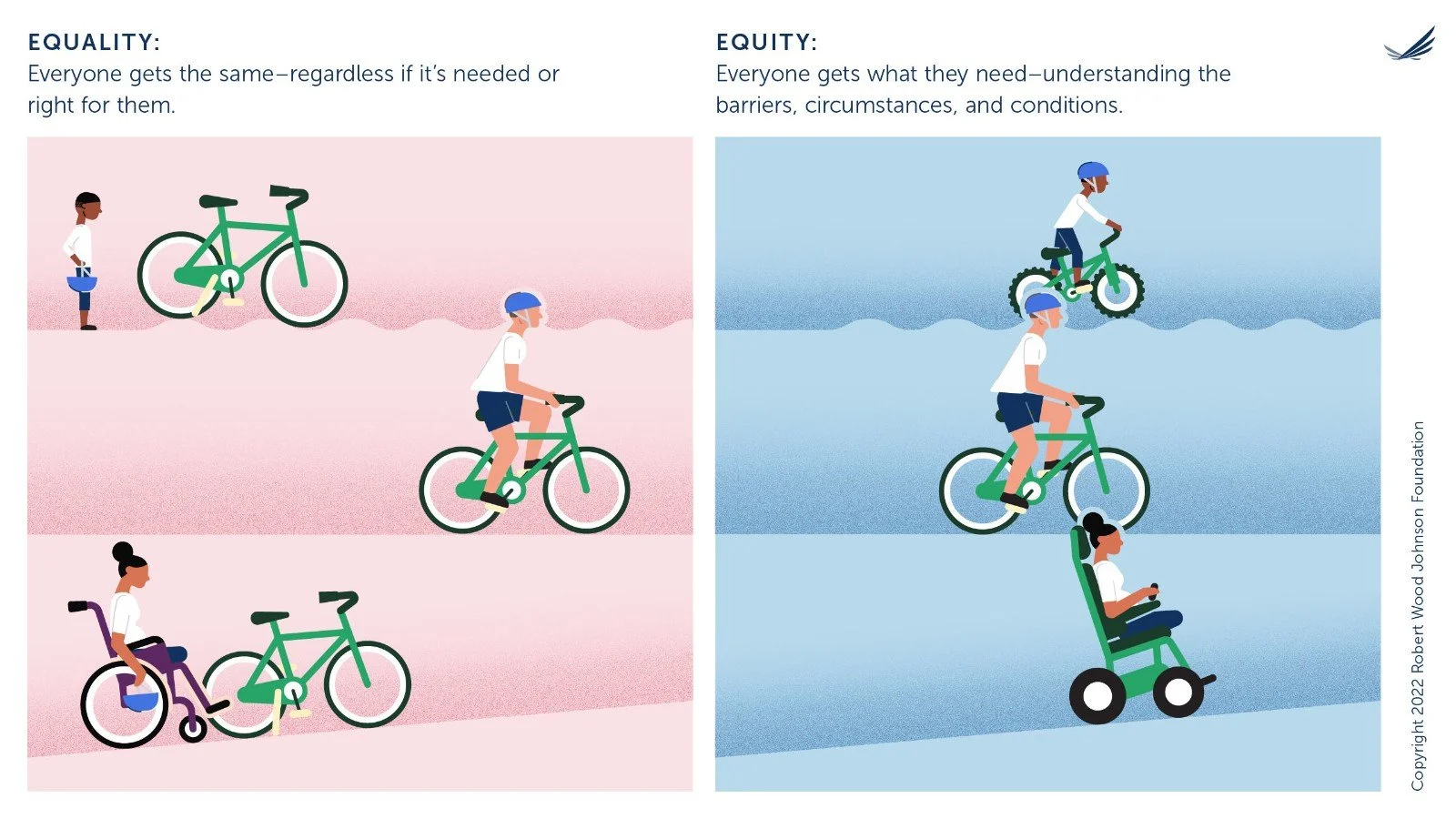Making Equity a Daily Practice
By: Spoorthy Uddurhally
Health equity is more than just a buzzword in public health—it's a practice that requires attention to detail in everyday actions. While large-scale initiatives are vital, public health professionals can create meaningful change through small, intentional actions in our daily work. Ask yourself: Does the data we collect truly represent the communities we serve? Are there simple adjustments we can make to ensure our data is more complete, and actionable, helping us uncover and address gaps in access to services?
Creating an inclusive environment in health data means ensuring that data systems, analysis, and decision-making processes reflect the actual needs of the entire population. Are we gathering the correct data to understand the barriers to health equity fully? Are there biases or gaps in our data that could limit our ability to address health disparities? By systematically evaluating how data is collected, analyzed, and applied, we can ensure that the insights generated lead to more effective public health interventions and, ultimately, better health outcomes for all.
Image from the Robert Wood Johnson Foundation.
One of the biggest challenges regarding health equity in data is ensuring that data products, analyses, and research are equitable. Even in smaller projects, countless decisions are made along the way. A systematic approach is essential for identifying and addressing these choices. The Data Equity Framework is one such process. It provides tools, checklists, and practices to help teams identify areas where we may be embedding a particular worldview or prioritizing specific lived experiences. This framework equips individuals and teams to make intentional choices that align with their equity goals. It's important to note that data equity doesn't exist to serve one specific group or identity. Instead, each project or team defines its equity goals and priorities, centering the lived experiences they aim to uplift. The Data Equity Framework helps ensure the tools and strategies align with those goals.
Ready to integrate health equity into your practice? We All Count offers a framework that organizes data projects into seven stages: funding, motivation, project design, data collection, analysis, interpretation, and communication. Explore their free Friday conversations, “Talking Data Equity” or their short courses—Data Equity Primer, Foundations of Data Equity, and Advancing the Data Equity Framework—to begin embedding equity into your health data practices.
